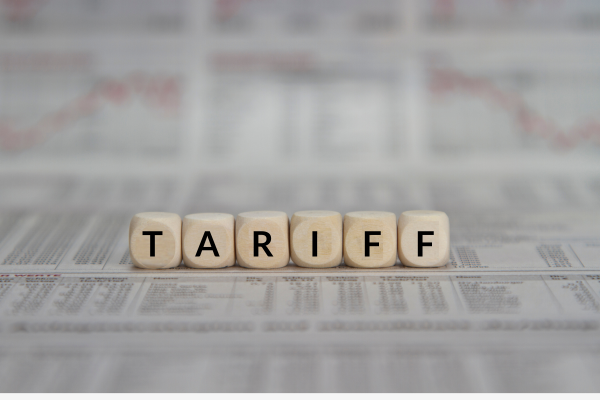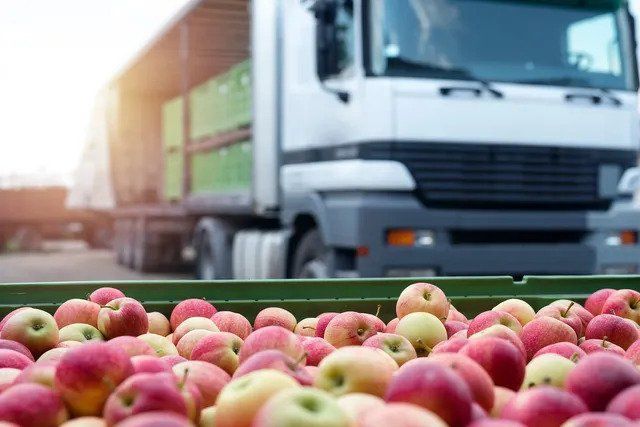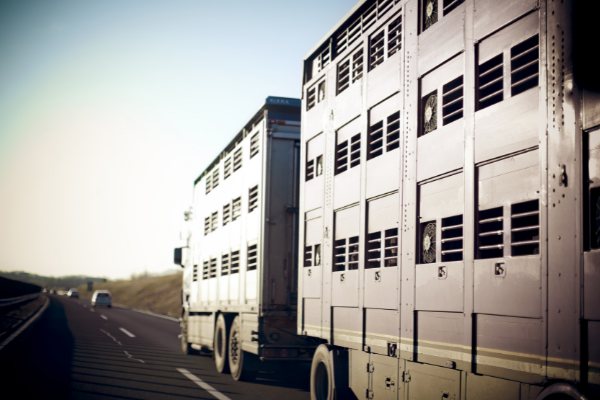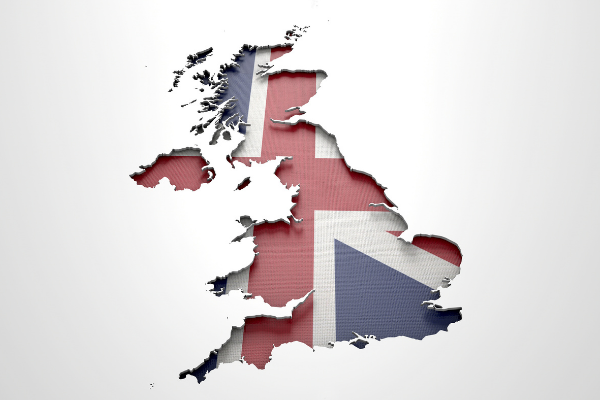BY:
SHARE:

Any trader moving animal or plant products over the borders into the UK will attest to the difficulties experienced if goods are not presented precisely as required by the cross-border IT systems supporting the UK Import Regulations.
The Animal and Plant Health Authority releases regular updates to its processes and procedures to help traders present data in the right order on the right systems at the right time.
It is very easy to miss something that could influence an authority's decision to hold goods at the border, whether at the behest of the Port Health Authority or by the Border Force.
Good communication within the supply chain for goods coming from EU Member States is pivotal, as is good contact between logistics providers and declaring agents.
There can be many actors in one movement across the border, particularly if that movement involves multiple consignments and mixed loads. The level of cross-border compliance difficulty multiplies according to the type of goods making the crossing, the documentary evidence needed, how the goods are presented through the cross-border IT systems, and the accuracy of the data submitted.
Top Tips
1. Multiple CHEDs under the same MRN.
There is an increased risk of a whole load being held at the border if one part of the load has a higher risk of requiring an SPS border check. A mixed load or groupage can cause the whole load to stall until checks have been completed.
Suggested Action
Traders and their agents are asked to check the status of their consignments in both IPAFFS and CDS and, if necessary, discuss options to negate the chance of delays with the Port Health Authority/Local Authority (PHA/LA) at the point of goods entry.
Options may include unloading the goods and separating consignments vulnerable to checks from the load. Of course, this will require resubmitting the Customs Declaration for the load.
Good communication is essential between all parties, including the driver, who will be responsible for separating the load and any consignments that could cause the movement through the port to stall.
2. Removal of consignments for inspections with a pre-lodged declaration.
Action to take:
If a change is made to a consignment in a pre-lodged declaration before the goods reach the GB border, it will be necessary to:
- Cancel the accompanying CHED notification in IPAFFS
- Amend the pre-lodged declaration to remove all commodity codes relating to the cancelled CHED and remove the CHED reference number from the declaration.
Likewise, the PHA should be advised of the CHED cancellation.
- Cancelled CHEDs should be removed from the Customs Declaration, or CDS will continue to look for an inspection decision, and the goods will stall at the port because the SPS hold indicator remains in place
- Consignments will not be released until the Customs Declaration is amended and the SPS hold is lifted.
- In exceptional cases where the CDS entry cannot be amended, the National Clearance Hub can issue a manual release.
Important Note: NCH will NOT release holds for any other reason.
3. Consignment remains under an SPS hold in CDS
If all the SPS checks are complete, the CHEDs are indicated as valid on IPAFFS, and the consignment remains on an SPS hold, the likelihood is that there are inconsistencies in the data submitted between the CHED import notification and the Customs Declaration.
Where action should be taken:
Traders and agents should check the data submissions for the CHED against those made in the declaration and make amendments, as necessary. The most common errors include:
- The CHED reference number is incorrectly entered onto CDS
- Commodity codes do not match.
- Non-English script characters have been copied and pasted into the CHED fields on IPAFFS
CDS will not recognise script characters used in other languages that do not appear in English, such as the acute accent or cedilla, which are common in European languages. Copying and pasting verbatim where such script characters are present will result in rejection on CDS.
- The final destination code has not been entered as GB, or the GB address is not recognised as a GB address.
The authorities advise that further assistance with the above issues should be addressed to the Port Health Authority applicable to the point of entry of the goods into GB
Animal by-product (ABP) Importer declarations –
How your EU supplier can help
ABP Model Health Certificate templates are available to traders in the EU. If completed by the exporting trader, they would assist the GB importer in completing accurate and compliant import formalities into GB.
The model certification is not obligatory, but voluntary use of the certification could help reduce the margin for error in product identification and accurate data entry, therefore assisting the smooth movement of ABPs through the import procedures.
Model Health Certification templates are available for the following products:
a. GBHC141 – for bones and bone products, horns and horn products and hoof products intended for use other than as feed material, organic fertilisers, or soil improvers
b. GBHC586 – for untreated wool and hair, depending on the country of origin and intended destination
c. GBHC144E – for intermediate products
Note: The model health certificate should support, not replace, commercial documentation
GOV.UK guidance can be found at the link below:
Import animal by-products from the EU to Great Britain - GOV.UK
Model Health Certificates can be found for download at the following link:
Hides, horns and trophies: model health certificates - GOV.UK
Foot and Mouth Disease
Enhanced import controls remain in place for affected commodities from Germany, Hungary, Slovakia, and Austria.
The hand carrying of affected commodities are also forbidden entry from all EU Member States into the UK.
The Foot and Mouth landing page can be found below:
Foot and mouth disease: latest situation - GOV.UK
A link to the Animal and Animal Products topical issues page, which includes information on other disease-related restrictions, can be found below:
Imports, exports and EU trade of animals and animal products: topical issues - GOV.UK
Useful contacts
Imports of animal products:
If you have urgent questions about imports of animal products, including germinal products, contact the Port Health Authority or Local Authority at the Border Control Post (BCP) at the goods’ point of entry.
BCP and PHA/LA contact information can be found on the following link:
Animals, animal products and HRFNAO imports: authorised border control posts in the UK - GOV.UK
Imports of live animals:
Urgent questions regarding the imports of live animals should be addressed to APHA, details at the link below:
Imports of plants and plant products:
Urgent questions regarding imports of plants and plant products into England and Wales should be addressed to the Animal and Plant Health Agency (APHA) by email:
The email address is: phsi-importers@apha.gov.uk
Contact can also be made by telephone on the following number: +44 (0) 3000 200 301
IPAFFS
Technical Help can be found by contacting the Animal and Plant Health Agency as below:
APHA Helpline is at 0330 041 6999 or email APHAServiceDesk@apha.gov.uk. This service is not available 24 hours a day.
Information on importing products of animal origin for human consumption can be found here: Import animal products for human consumption from the EU to Great Britain - GOV.UK
A link to the guidance pages for the import of live animals and germinal products can be found here: https://www.gov.uk/guidance/import-live-animals-and-germinal-products-from-the-eu-to-great-britain
Further information on the import of High-Risk Food and Feed Not of Animal Origin can be found at the link below:
Plants and plant products:
- Import plants and plant products from the EU to Great Britain - GOV.UK
- Trade - UK Plant Health Information Portal
Importing from non-EU countries:
Guidance on the import of live animals, animal products and HRFNAO from third countries can be found below:
Guidance for the import of Plants and plant products from third countries can be found at the links below:
- Import plants and plant products from non-EU countries to Great Britain - GOV.UK
- https://planthealthportal.defra.gov.uk/trade/
If you are interested in exploring this topic further, you might find it worthwhile to consider the training courses and live clinics offered by Strong & Herd LLP:
OneCall™ Email assistance as and when required; A one-call solution for all your import, export and customs enquiries. Export help. Import help. Customs help.
Stay informed about customs and international trade matters by subscribing to our OneCall™ service. This comprehensive offering includes a dedicated email helpline for support, timely practical updates direct to your inbox (Did You Know?), monthly UK Customs & Trade Briefings and access to an interactive members' area with an exclusive community for our subscribers.
International Trade Updates & Spotlight Newsletter
Subscribe to our free information emails covering international trade topics...
MORE INDUSTRY INSIGHTS...












